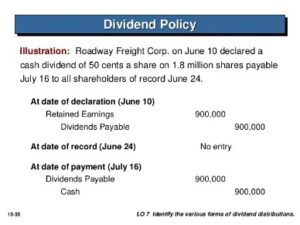Warning: Trying to access array offset on value of type bool in /var/www/wp-content/themes/enfold/framework/php/function-set-avia-frontend.php on line 536

This guide collects resources covering small business financial topics critical to growth. Setting aside three to six months’ worth of operational expenses can help tide your business over during financial snags. That’s a lot of cash to have on hand, but saving a little at a time, perhaps 10% of your income in a separate high-yield business savings account each month, can help you reach your goal. Your business credit score affects everything from qualifying for business credit to landing contracts and the rate you’ll pay for business insurance.
Plan for and pay business taxes
Keeping your personal finances separate from your business finances offers many advantages, from simplifying your accounting to protecting your personal property and other assets. Established small businesses, typically with two years in operation, generally opt for term loans. They use term loans to buy assets (such as equipment) or growth investments, versus using it to cover day-to-day expenses.
Many new small business owners use their personal credit cards to cover business expenses and deposit business revenue directly into their personal checking accounts. While that might be convenient at first, it can lead to serious complications. A business line of credit or business credit card how to pay yourself as a business owner can be a good option for short-term financing. For funding larger projects or business needs — like a renovation, equipment, or new marketing campaign — a business loan might be the way to go.
- Net profit margin tells you how much income your business is bringing in after expenses and gives you a picture of the overall profitability of your business.
- Coming up with the right price for your products is an important part of your budget.
- Hiring an online service, like Bench, could be the right choice for your business if you prefer to work online and your business isn’t cash-heavy.
When it comes to the financials of running a business, most small business advice falls into two schools of thought. Start your free trial with Shopify today—then use these resources to guide you through every step of the process. Our goal is to create the best possible product, and your thoughts, ideas and suggestions play a major role in helping us identify opportunities to improve. You’re probably familiar with the importance of having your own emergency fund, but did you know your business should have one, too? This became apparent for many businesses during the COVID-19 pandemic, but unexpected business shortfalls can happen for many reasons. To help celebrate businesses paving their way forward, we partnered with Forbes on the Next 1000 initiative to spotlight bold entrepreneurs and share their most valuable lessons.
Stay on top of the day-to-day money management

By optimizing your payroll process, you can improve your cash flow, making it easier to pay employees each payday. Preparing ahead of time is also the best way to avoid tax season stress. Avoid common tax mistakes with organized records and bookkeeping. For tax advice on your unique business needs, consult a reputable accountant. Don’t hold off on analyzing accounting reports and financial statements to gain insight into your business’s performance.
Join millions of self-starters in getting business resources, tips, and inspiring stories in your inbox. You can use the above values to calculate your gross profit (Revenue – Cost of Goods Sold) and your net profit (Gross Profit – Operating Expenses). Without records—the documents that show what your company has been spending and earning over the course of a year—there’d be nothing for bookkeepers or accountants to do. Now that you know why you need to stay on top of your bookkeeping, let’s look at how to do it. Monitoring your books lets you see in real time what’s working well and what needs tweaking. Both strategies are reasonable, but there are other ways small business funding works.
Avoid financial and legal issues
We may also receive payment if you click on certain links posted on our site. One of the first financial decisions you need to make in your business is choosing between cash and accrual basis accounting. The profit and loss statement, also known as the income statement, shows your business’s revenues, expenses and profit or loss over a period of time — usually a month, quarter or year. how to conduct an inventory audit You can usually find one that offers free checks, no monthly maintenance fees and unlimited transactions.
Your cost-benefit analysis shows that you should add outdoor seating, because the new benefits ($5,000 in new sales) outweigh the new costs ($3,000 in permitting and equipment expenses). Review your business reports, and assess your core business and financial why is ethics important in writing operations in relation to your sales and operating margins. Make your business finances clean and straightforward by separating them from your personal funds early on.
Separate business, pleasure and private accounts
Financial statements might seem intimidating at first, but once you get a handle on them you’ll love the peace of mind that comes with having a strong grasp of your business’ finances. Categorizing your transactions is the last piece of the bookkeeping puzzle. Double entry is a little complicated, so let’s walk through an example.

